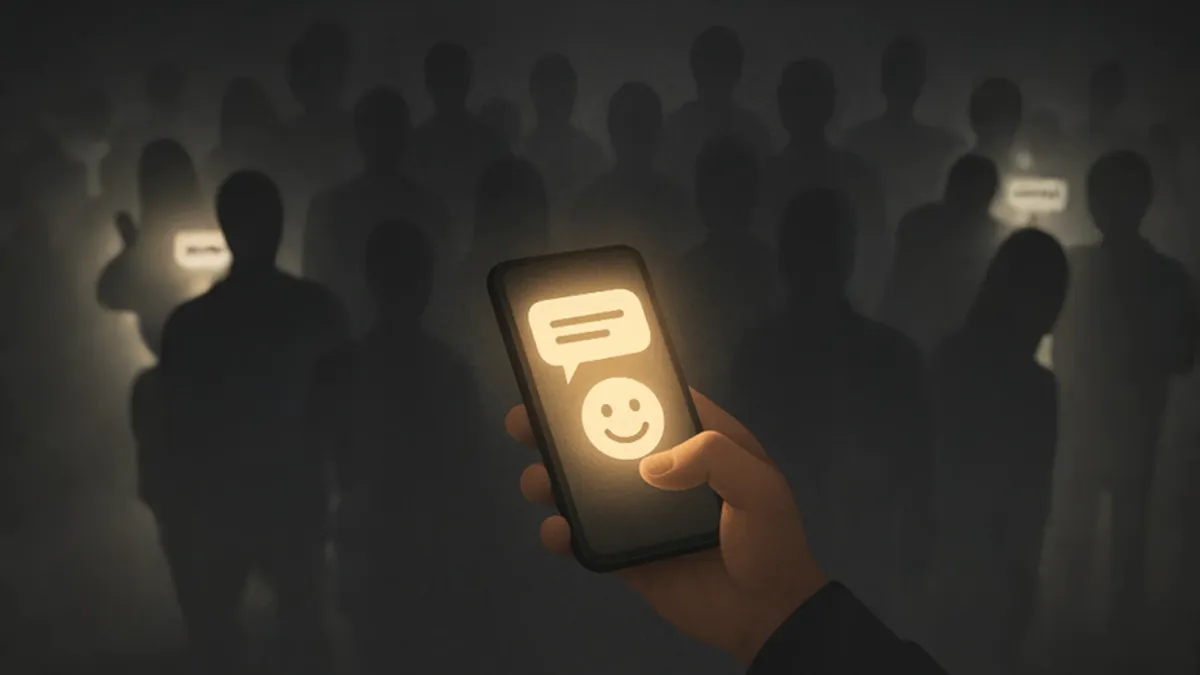Adonis once said: “My anxiety is a spark on a barren mountain, my love a green lighthouse.”
Have you ever experienced social anxiety? How much do you really know about it?
According to the World Health Organization, about 7% of the global population suffers from some form of social anxiety. In most cases, their fear and anxiety come from worrying that their behavior or image will fall short of others’ expectations, or from discomfort with being observed.
One survey found that more than 40% of people reported experiencing some degree of “social anxiety.” Whether it stems from oversensitivity leading to self-isolation, or the need to maintain boundaries in the workplace, there may be a thousand different reasons for a thousand different people to “refuse social interaction.”
More and more individuals are now searching for new ways to ease the pressure. AI chat software has just entered their field of vision.
What is Social Anxiety
Social anxiety refers to the worry and nervousness that arise in social interactions. At its core, the anxiety is not only about the fear of saying the wrong thing or underperforming, but also a deeper fear of “being scrutinized” by others.
What many people casually call “social phobia” often does not meet the level of a medical disorder. Instead, it has become an internet buzzword derived from a clinical concept, used more as a playful group label.
The Struggles of Social Anxiety
Social anxiety is more than just emotional discomfort—it gradually infiltrates every aspect of life. Many people avoid social activities altogether, missing the chance to build friendships or expand networks. Prolonged isolation can worsen loneliness and even lead to depression.
In the workplace, social anxiety can become a barrier to growth. A capable employee may avoid speaking in meetings, making it difficult to showcase their ideas and value. Students may hesitate to raise their hands in class, which negatively affects their learning experience.
How AI Chat Software Helps
AI chat software is increasingly being tried as a new tool. Unlike real people, AI does not judge, stare, or lose patience when faced with nervousness. In a completely controlled environment, users can freely express themselves and practice communication skills, which can help ease anxiety to some extent.
Some users say conversations with AI create a “safe social setting.” Whether it’s practicing small talk, engaging in deeper dialogue, or expressing worries late at night, AI responds instantly. This consistent emotional support provides comfort and helps users gradually build confidence, preparing them for real-life social interactions.
AI chat software can also adapt to users’ preferences and habits. It can gently guide conversations, teach users how to ask questions, respond naturally, or maintain eye contact and confident expression. For those just beginning to work on social anxiety, it offers a low-risk practice platform.
Potential Risks
AI is not human. Its responses are generated by algorithms and data, not genuine emotions. For those who are extremely lonely or anxious, mistaking AI as a replacement for real human relationships may lead to further detachment from reality.
Data privacy is another important concern. Users may share large amounts of personal information in conversations with AI. Without strong privacy policies, this information could be at serious risk.
Flipped Chat’s Efforts
Flipped Chat seeks to provide a more human-like and safer platform for communication. The design team pays special attention to the needs of people with social anxiety, aiming to help them gradually build confidence through gentler and more inclusive interactions.
Its character library offers a wide variety of options. From humorous virtual companions to empathetic “friend-type” characters, users can find the kind of support that suits them. And if the existing library is not enough, Flipped Chat encourages users to create their own. They can customize dozens of details, from voice to appearance.
In terms of safety, Flipped Chat makes privacy protection a core commitment. Users can decide whether to save chat records and whether characters should remember past conversations. This ensures that personal information is not misused.
The Bigger Picture
No one can live as an isolated island:it is in human nature to seek connection. But the way we set our social distance is a personal choice, and everyone can find the balance that feels right for them. There is no need to force change or seek approval.
Whether AI can truly become a cure for social anxiety remains an unanswered question. What is certain, however, is that platforms like Flipped Chat are offering many people a chance to explore new possibilities. It cannot replace genuine human relationships, but it can serve as a gentle beginning, giving those held back by anxiety the courage to step forward once more. Perhaps, you will discover that the first step toward the real world is not as distant as it once seemed.

